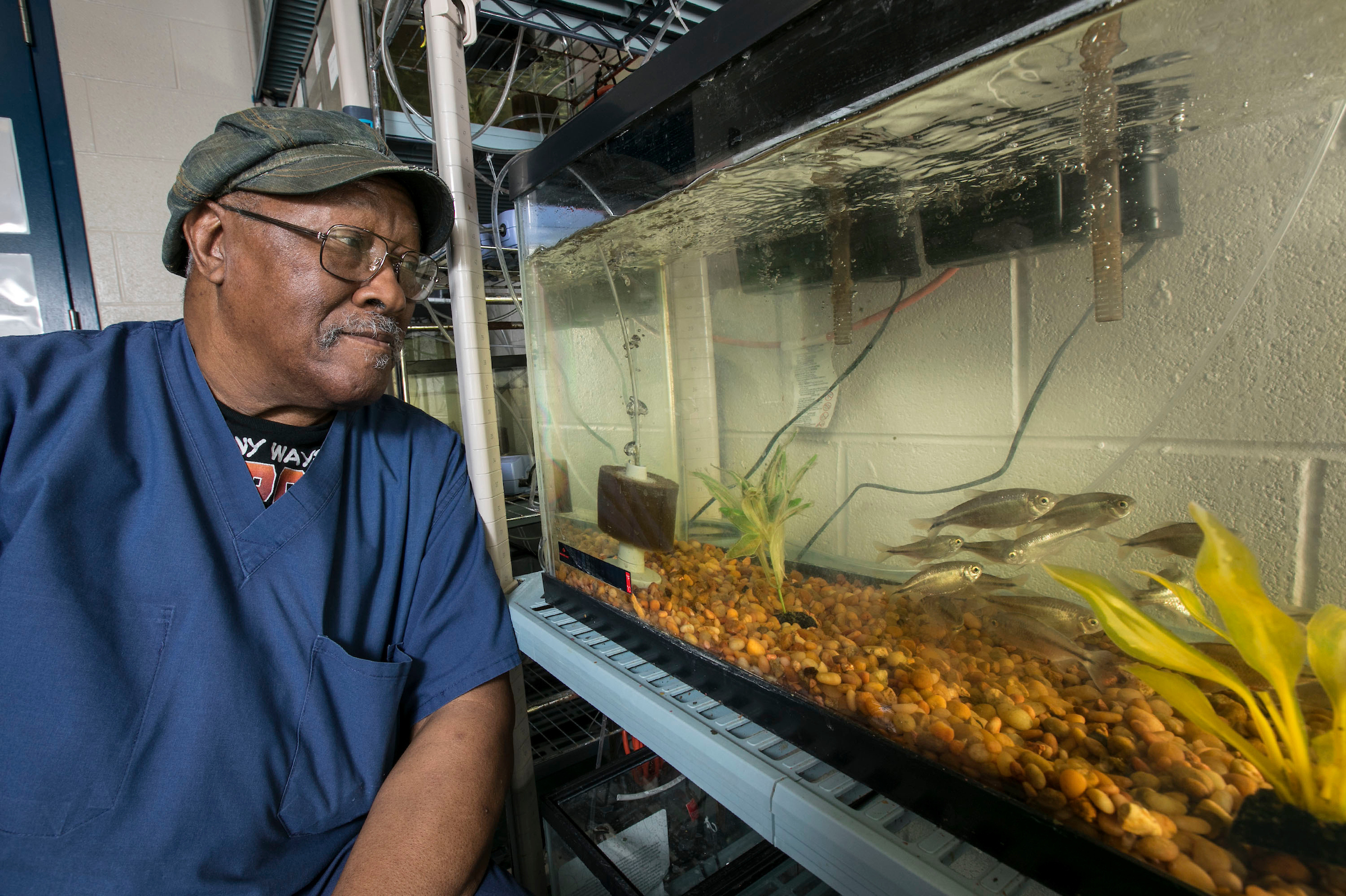 Mexican tetras, a type of freshwater fish, are one of the species JD Davis cares for at DePaul. This April, Davis will celebrate his 16th year as the animal caretaker at the university's research support facility. (DePaul University/Jamie Moncrief)
Mexican tetras, a type of freshwater fish, are one of the species JD Davis cares for at DePaul. This April, Davis will celebrate his 16th year as the animal caretaker at the university's research support facility. (DePaul University/Jamie Moncrief)
It's a brisk April morning on the Lincoln Park Campus. The sun is just beginning to rise, a handful of birds chirp to one another from the trees on the quad. JD Davis, DePaul's animal caretaker, has already been on campus for nearly two hours, tending to the animals that live in the College of Science and Health's research support facility.
"Here in the facility, we have a limited number of species," Davis says. "Sometimes we'll get a few frogs. Having a small variety makes things a bit easier, in terms of care. Throughout my career at other facilities though, I've worked with all sorts of critters - from chickens to chinchillas to lizards."
Davis, who still is happily working at the age of 84, has been part of the DePaul community since 2002. Every day he arrives on campus at 4:30 a.m., and starts making his way through his to-do list. Tasks range from feeding the animals and changing the bedding in cages to scrubbing algae from fish tanks and checking in on the university's green house. Davis even trekked to campus during Chicago's infamous 2011 blizzard to ensure the animals were fed and watered.
Before coming to DePaul, Davis worked in similar facilities at Children's Memorial Hospital and Northwestern University. In total, Davis has accrued nearly 40 years of experience caring for animals that aid the advancement of research, science and health.
"Before becoming an animal caretaker I worked in construction," Davis says. "But that's a young man's job. I have always loved animals, so when this opportunity arose I thought I'd try my hand at it. In some cases, the animals are making the ultimate sacrifice for us, so I think it's important to make their lives the best we can."
Each academic year, DePaul conducts between three and five lab courses that involve animals, and not all protocols are medical in nature. In a study of Mexican tetras, a type of freshwater fish, students analyze the effects of temperature change on the development and adaptation of the species. Another DePaul study focuses on oxygen consumption by goldfish at different temperatures to help students understand the basic principles of gas exchange in both air and water.
"After that one quarter in the lab with students, the animals just live here with us," Davis says. "But that doesn't mean my job is ever quiet or boring. It is always interesting to hear from faculty and students about their studies and their hopes for new research and projects."
This month, Davis will celebrate his 16th year on campus, and even with the approach of his 85th birthday, he has no plans to retire.
"I just love what I do," Davis says. "It's as simple as that."